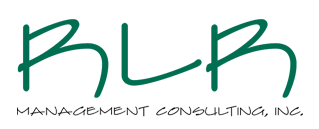Banking Marijuana-Related Businesses Part 2
RLR Management Consulting, Inc.
So, what does this all mean? Well, if you are considering providing banking services to MRBs, you need to carefully consider the program that you will need to develop, implement and monitor.
We don’t have guidance, I mean regulatory guidance that lays out exactly what we need to do. The treasury Department issued FIN-2014-G001-Bank Secrecy Act (BSA) Expectations Regarding Marijuana-Related Businesses published February 14, 2014 and the Department of Justice (DOJ) used a memorandum entitled “Guidance Regarding Marijuana-Related Financial Crimes”. The memorandum issued by the DOJ is a follow-up to an August 29, 2013 memo also containing guidance to federal prosecutors concerning marijuana enforcement under the Controlled Substance Act. The memorandum issued by the DOJ does not grant a safe harbor from prosecution, but directs prosecutors and regulators to give priority to cases where FIs have failed to adhere to the memorandum. We think it best to read and know the guidance issued by the treasury Department that clarifies how financial institutions can provide service to MRBs while maintaining their obligation to BSA.
Financial Institutions have found it helpful to use a “tiering” method to determine the level of due diligence, monitoring and reporting for the MRBs.
Tier 1
Tier 1 MRBs are considered the riskiest because they literally touch marijuana at some point along the supply chain, and most clearly “manufacture, distribute, or dispense marijuana”. Tier 1 MRBs generally encompass businesses licensed by a state or “marijuana-related legitimate business” as defined in proposed federal marijuana banking bills. Tier 1 MRBs include, but are not limited to, the following categories:
- Cannabis seeds
- Processing
- Testing
- Retail delivery
- Planting
- Packaging
- Transporting
- Cannabidol
- Cultivation
- Infused products
- Medical dispensary
- Industrial hemp
- Harvesting
- Wholesaling
- Recreational retail
Tier II
Tier II MRBs are considered less risky than Tier I MRBs because they do not directly “manufacture, distribute, or dispense” marijuana and are typically not licensed by a state as a “marijuana business” per se. However, Tier II MRBs are considered “marijuana businesses” within the framework because they are specifically focused on providing products and services to Tier I MRBs and the marijuana industry in general. Tier II MRBs include, but are not limited to:
- Hydroponic supplies
- Payment processors
- Packaging supplies
- Advertising and public relations
- Licensing consulting
- Training and education
- Industry associations
- Marijuana software
Tier III
Tier III are considered the lease risky tier and not a “marijuana business” in the strictest sense. Unlike Tier II MRBs, Tier III MRBs are not specifically focused on selling to Tier I MRBs or the marijuana industry. Tier II MRBs are specific businesses known to serve Tier I MRBs and, as such, might still be considered to be “aiding and abetting” an illegal activity in a strict sense. Tier III MRBs can be any type of business, but generally are professional service firms (e.g. attorneys, accountants, registered agents, etc.) and commercial property owners.
FinCEN also established three types of new suspicious activity report (SAR) formats to be implemented, tailored to the marijuana business, that the financial institutions would have to file. The first is “Marijuana Limited” SAR. This described marijuana clients who did not appear to violate any of the federal priorities or state law. The “Marijuana Limited” SAR would be filed only because it is a marijuana business, but no suspicious activity has been identified. The second type of SAR is “Marijuana Priority” and is filed where clients are believed to be either violating state law or one or more of the Cole memo’s federal priorities. The third and last type of SAR is “Marijuana Termination” and is used in cases where banks decide to terminate its relationship with a marijuana business client, and may alert another financial institution about possible illegal activity.
Good background info, but where do you start?
- Start by understanding your state, county and city regulations with regard to marijuana-related businesses.
- Perform an overall Risk Assessment
- Talk to your regulator about your plans, no surprises!
- Develop a documented program on all the elements of banking marijuana-related businesses
- Conduct training for all senior and executive staff, to include the board of directors
- Enhance your CIP and Customer Due Diligence policies and procedures
- Ensure your Enhance Due Diligence (EDD) is updated
Next time we will have an update on the hearing about the issue of cannabis banking and the SAFE Banking Act, as well as taking a deeper dive into what your program needs to look like.
